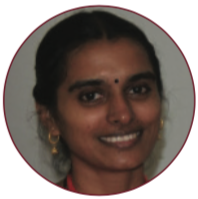Rio Conference Overview
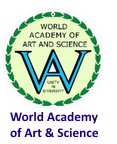 |
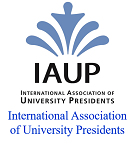 |
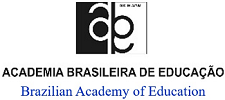 |
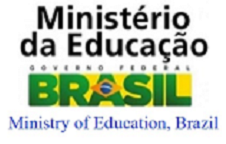 |
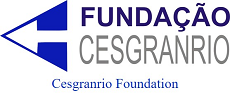 |
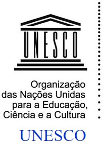 |
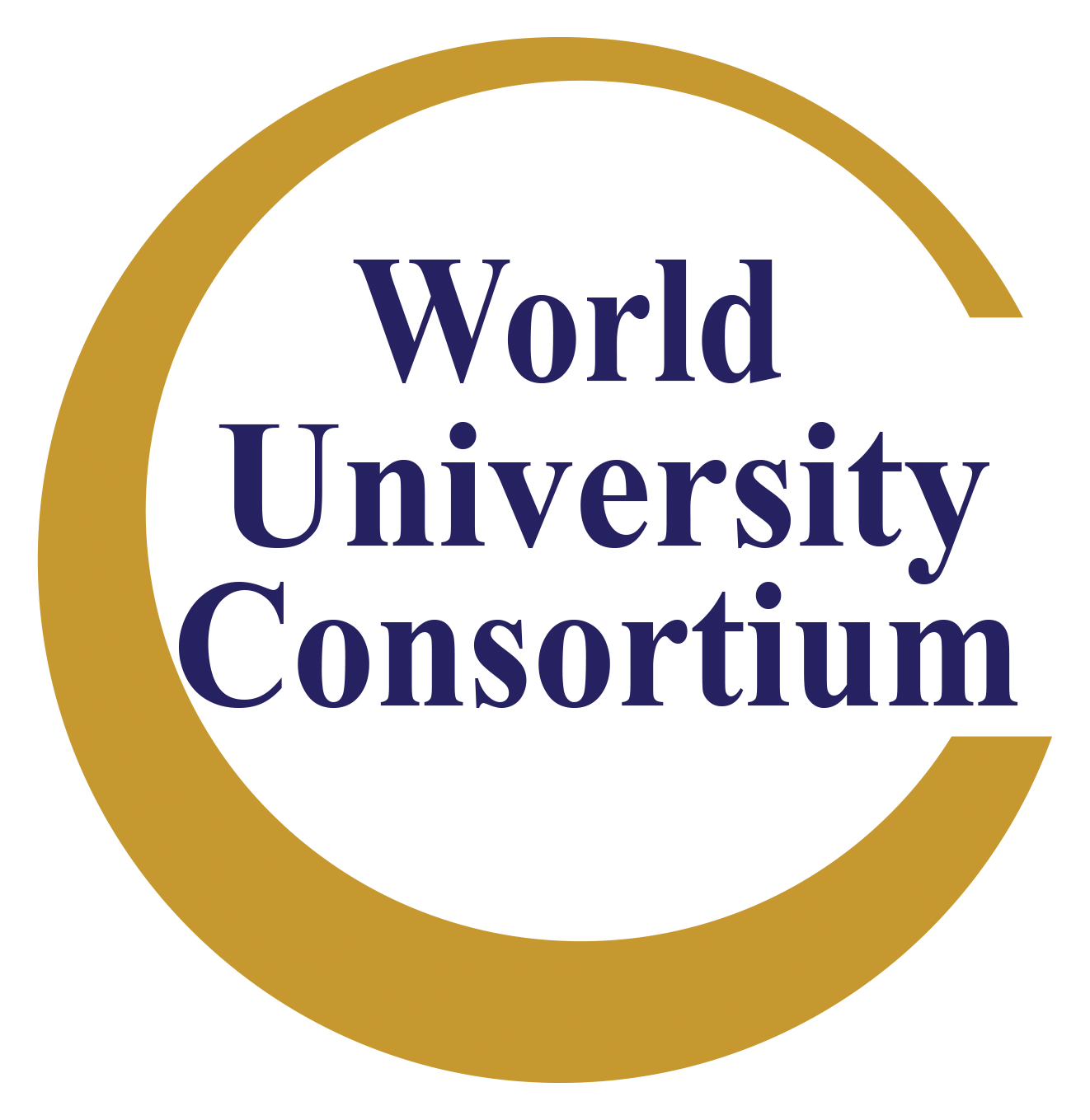 |
THIRD INTERNATIONAL CONFERENCE ON FUTURE EDUCATION
“LATIN AMERICAN PERSPECTIVES”
Effective Learning in an Age of Increasing Speed, Complexity and Uncertainty
November 12-14, 2018 – Rio de Janeiro – Brazil
This Conference was supported by the Ministry of Education of Brazil
BACKGROUND
Building on a break-through conference at the University of California, Berkeley, in 2013 and the Future Education Conference at the University of Roma TRE, in Rome, Italy, in November 2017, the World Academy of Art and Science (WAAS) and the World University Consortium (WUC) joined hands with the Ministry of Education of Brazil, UNESCO and Fundação and Faculdade CESGRANRIO to conduct the “Third International Conference on Future Education –Latin American Perspectives” to identify practical measures to meet the needs and aspirations of major stakeholders – youth, students, teachers, employers, workers, research institutions, universities, governments and civil society, in this region of the world.
THE CHALLENGE
Society is changing faster than ever before, generating unprecedented opportunities and challenges in its wake. Anticipating and addressing the consequences of the Fourth Industrial Revolution, environmental pressures, rising levels of youth unemployment and inequality, globalization and virtualization of business models, the explosive growth of online communications and education, the globalization of education, increasing intercultural contacts and migration will place enormous pressure on educational institutions, students, teachers and researchers.
THE SOLUTION
Education is humanity’s most effective instrument for consciously steering social evolution to maximize the benefits and minimize the disruption and trauma associated with it. There is an urgent need for expanding the reach, accessibility, affordability and quality of education at all levels. But multiplying the existing model is not sufficient. Indeed, it is likely to aggravate rather than alleviate many problems due to the time warp and gap between the education offered today and that which is so urgently needed. We not only need more education but education that is qualitatively different – a new paradigm. Updating course content is not enough. We need an education that equips youth to adapt to future innovations and challenges that cannot be fully anticipated now.
The Conference was held in Rio at
HOTEL WINDSOR FLORIDA
Rua Ferreira Viana, 81 – Catete
Rio de Janeiro, RJ CEP 22210-040 – BRAZIL
Click here to download the PDF version of the Report

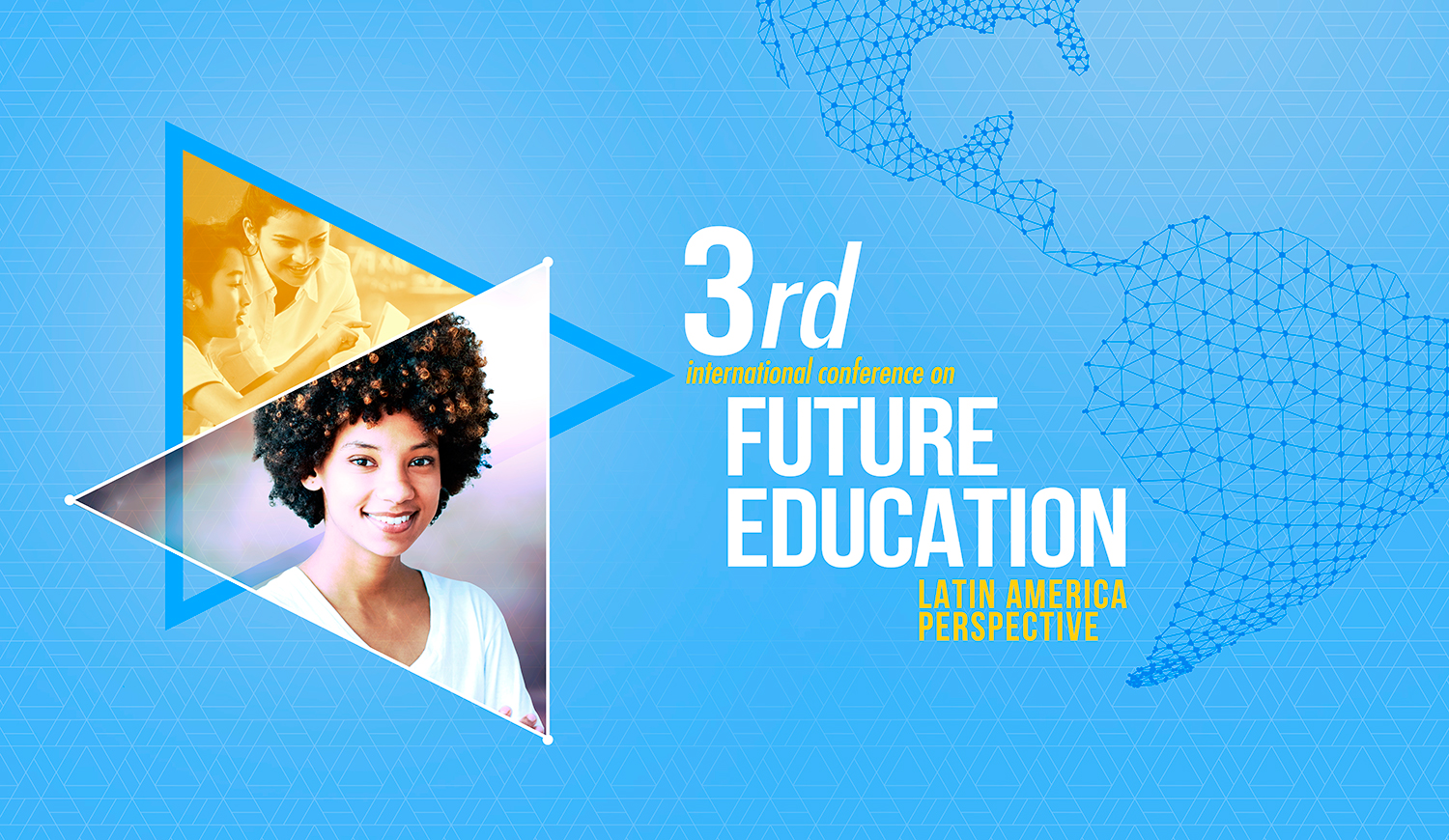

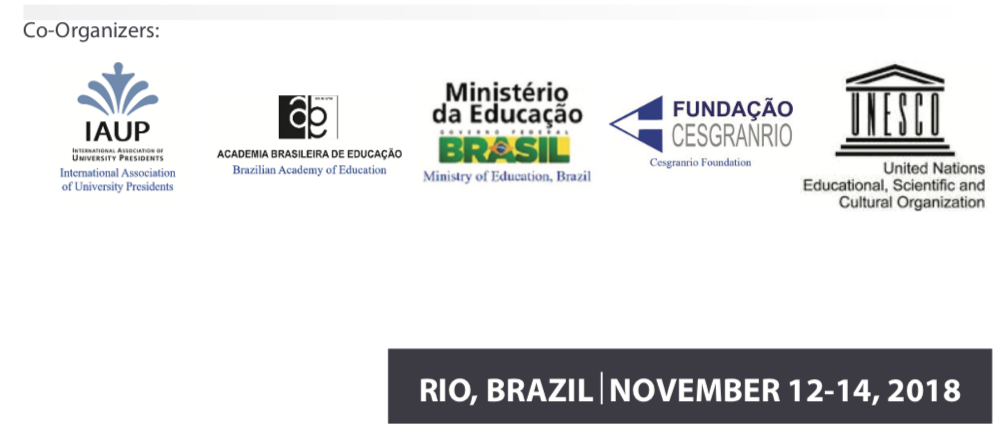

A Watershed Moment for Future Education and WAAS
|
||||
|
We have reached a definitive turning point in our path towards the education of the future. The 3rd International Conference on Future Education—Latin American Perspectives held in Rio de Janeiro on November 12-14, 2018 marked a definitive stage in WUC’s efforts to promote a new paradigm in education. It clearly defined the path for educational reforms and delineated best practices in teaching and learning to prepare youth for the challenges and opportunities of the 21st century. The conference built on the earlier conference at the University of California at Berkeley in October 2013 on the potentials of online learning, which led to the founding of WUC and a second at Roma Tre University, Italy in November 2017, which identified key elements of a paradigm shift in pedagogy and content emphasizing active, collaborative, contextual, person-centered learning. |
The Rio conference brought together leading educators and leaders from Latin America to showcase innovative approaches and success stories in education around the world. It attracted 272 registered participants from Latin America, North America, Europe and Asia, including 47 speakers, chairpersons and panelists. Participants concurred that the challenges confronting humanity today necessitate radical transformation in our way of thinking and acting. Such a transformation is only possible when it begins with the way we educate our youth. The evolution, development and promotion of accessible, affordable, contextual, relevant, value-based, quality higher education worldwide is a critical and urgent need. The case studies cited reflect a growing recognition that this change is possible and is already beginning to take place. That shift will provide essential support for achievement of the UN’s Sustainable Development Goals. |
|||
Organizers, Partners and SponsorsThe Conference was co-organized by the World Academy of Art & Science and World University Consortium in collaboration with the Ministry of Education of Brazil, UNESCO-Brazil, the Brazilian Academy of Education, Fundação Cesgranrio, and International Association of University Presidents. The organizing committee consisted of Carlos Alberto Serpa de Oliveira, President of Fundação Cesgranrio, WAAS Fellow Paulo Alcantara Gomes, Academic Director of Faculdade Cesgranrio and former Rector of the Federal University of Rio de Janeiro, and Heitor Gurgulino de Souza, President of WAAS & WUC and former Rector of the United Nations University, Japan. WUC extends its deep appreciation to Carlos Alberto Serpa de Oliveira for the great institutional and financial support provided before and during the Conference. |
||||
KEYNOTESFrom Left to Right: Felipe Sartori Sigollo, Maria Helena Guimarães de Castro, Saadia Beatriz Sanchez Vegas, José Francisco Pacheco & Paulo Barone |
||||
|
The Conference was inaugurated by Felipe Sartori Sigollo, Executive Secretary Adjoint of the Ministry of Education, Brasilia, Brazil and Saadia Beatriz Sanchez Vegas, the Representative of UNESCO in Quito, Ecuador. The opening address on “Education and the 4th Industrial Revolution” was given by Paulo Alcantara Gomes. This was followed by three days of presentations and panel discussions on topics critical to the future of education in Latin America and the world. The 4th Industrial Revolution, Contextuality, Interdisciplinarity, Online & Hybrid Learning, Student Evaluation, Teachers Training, |
Entrepreneurship, and Employment were the major issues covered in the conference. The presentations and discussions pointed to a convergence of ideas and a general agreement on the next steps to be taken. Presentations were simultaneously translated into English, Spanish and Portuguese and videos were recorded. Notable contributions were made by Maria Helena Guimarães de Castro, Councillor, National Council of Education, Brazil; José Francisco Pacheco, founder of “Escola da Ponte” in Portugal, who is now living and teaching in Brasilia, Brazil; and Paulo Barone, Secretary of Higher Education, Ministry of Education, Brazil. |
|||
Thought must lead to Action!
Education is humanity’s most effective instrument for consciously steering social evolution. We need a system that equips youth to adapt to future innovations and challenges that cannot be fully anticipated or taught in the present. It is vital to develop strategies and action plans for the whole transformation of the educational system to rise and meet the future head on.
|
Transforming Pedagogy
Making learning active and collaborative can exponentially multiply the speed, quality and effectiveness of learning outcomes. Developing the mind is more important than information and understanding. Developing the person is more important than test scores, skills, degrees and even knowledge.
|
|||
|
Click here for the list of Rio Conference videos and presentations Rethinking Education for SDG 4 |
||||
|
In the face of radical changes today, we cannot expect different results when we do more of the same thing in our attempt to spread education. What is needed is an educational rethink. UNESCO reminds us that education is needed to address a number of critical objectives: learning to be, learning to do, learning to |
know, learning to live together, learning to transform and learning to live in harmony with nature. The SDGs are our shared path towards sustainable development that places responsibility on every citizen of the world as an agent of transformation. Every one of us has a share in this ethical and political responsibility. Indifference is not an option. “No one will be left behind” is the ethical imperative of the SDGs. – Saadia Beatriz Sanchez Vegas |
|||
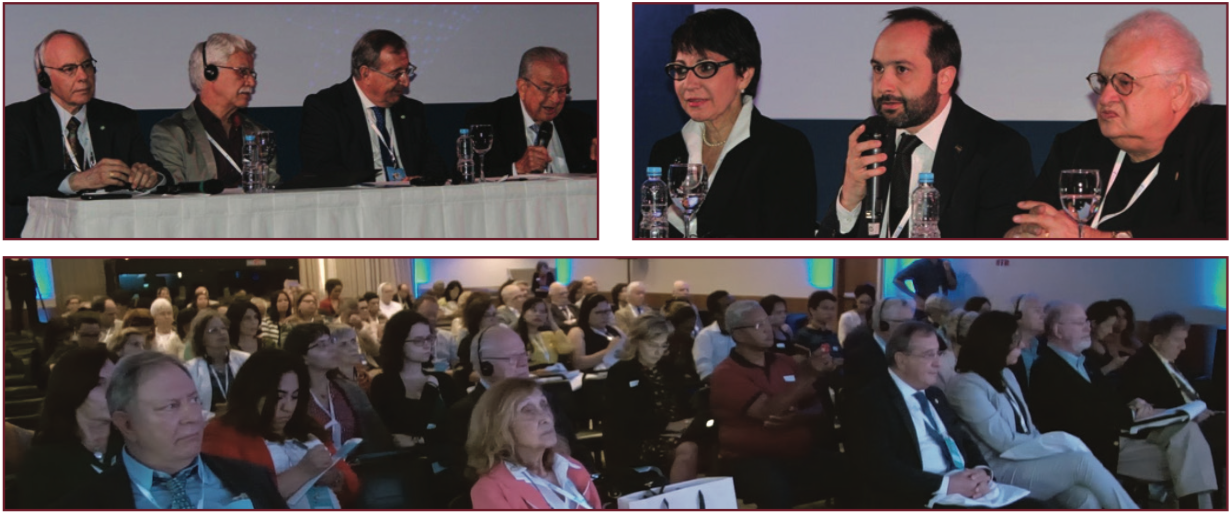 |
||||
Implementing SDG 4 and Going Beyond
Bottom-up Approach: We need to urgently elevate the level of human discourse, in order to quickly enable the world population to become a more trusting and co-operative society. Top-down Approach: Top management everywhere must be prepared for the task of achieving the SDGs by 2030. This will require huge investments and the completion of multiple mini-missions such as design, decision making, licensing and hiring staff. Both these approaches require a well-coordinated global educational effort. – Yehuda Kahane |
||||
Transdisciplinarity in the Natural SciencesThe real need is for young scientists to know how to move forward when faced with a real world problem on a technical topic they have never faced before, on a real time scale and a real world budget. This will not be possible without collaborative links between sciences. Much of the most exciting and useful research is occurring at the boundaries between traditional disciplines. Current university departmental structures impede rather than facilitate multidisciplinary research. We need to create ‘departments without walls’ in our universities. Universities must prepare students to work, think and communicate in interdisciplinary teams with an interdisciplinary perspective. Institutional barriers must be removed so students can change from one faculty to another, one university to another, one field to another. – Marcel Van de Voorde |
Person-Centered Education: Education as it should be
Education is a learning experience promoting our capacities to live a significant existence and develop our potentialities to become creative, resilient and peaceful citizens. Person-centered education accomplishes this by developing in everyone resilient and sustainable ways of knowing, doing and being. – Alberto Zucconi |
|||
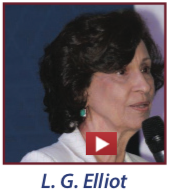 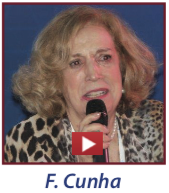 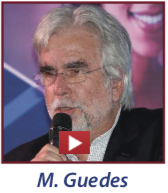 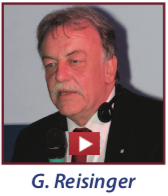 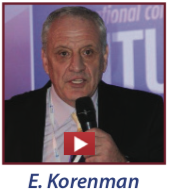 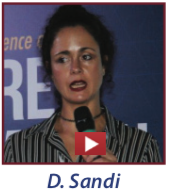 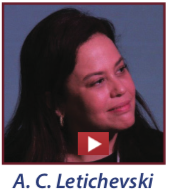 |
||||
Reinventing Education for the Future
Basing itself on the truth that one learns more when one teaches others, Ecole 42 is a private, nonprofit, tuition-free school that enables students to learn computer programming through a project-based, peer-to-peer, active collaborative pedagogy. The school has no faculty, does not issue any certification, and is open 24/7. Students’ projects are self-paced without any fixed time limits, and are graded and validated by peers. Curriculum is gamified. It offers everyone an education, a community and real-life skills. – Olivier Crouzet |
||||
Education 4.0 for the 4th Industrial Revolution |
||||
Making Every Dollar Count
One of the major challenges is to increase the learning outcomes achieved for every dollar spent on education, particularly in developing states. Interpretation of data should become a more important part of the curricula of the future. Students will become more and more involved in shaping the curricula. With increasing independent study, mentoring will become more important for student success, and teachers will need to mainly guide students through the superabundance of information available. – Kakha Shengelia, President, |
Education in an Age of Job Uncertainty
How do we prepare our youth for such an extremely challenging job market? How will we employ the abundant free time we will have on our hands? Future education must foster creativity from early childhood, a key to preserving human control in future world. Future generations must be taught to value all human activities, not only economically productive ones but also those which emphasize self-discovery and artistic endeavors. – Neantro Saavedra-Rivano |
|||

Breaking the Boundaries with Transdisciplinary Education
|
||||
|
Education has been one of the most important drivers of the remarkable developmental achievements of humanity over the past century. But more of the same is not enough to meet the challenges and tap the opportunities that are emerging. All our current problems—political, economic, legal, social, psychological, cultural and ecological—are interrelated, interdependent and complex. They extend from the individual and firms to nation-states and the global community. They are all the result of the inadequacy of current institutions, public policies and social organization. They all reflect the inadequacy of existing knowledge and theory and defy resolution based on the prevailing principles and premises of social science. A radical change in educational content and pedagogy is required to address real-world issues. In anticipation of this need, in 1960 the founders of WAAS envisioned creation of a World University that functions at the highest scientific and ethical level to bridge the gap between academia and society and to overcome the limitations of disciplinary perspectives by integrating perspectives from all fields of the arts and sciences. Over the past sixty years since its inception, WAAS has established partnerships and regional centers of excellence, and conducted conferences aimed at the furtherance of this vision. The founding of the World University Consortium in 2013 is a major initiative toward fulfilling this goal. Over the past five years WAAS partners and WUC charter members have collaborated to conduct more than a dozen roundtable discussions at the Inter-University Center, Croatia as part of a participative action research program to develop new perspectives, syllabus and content for integrated, human-centered, contextual, multi-disciplinary, multi-sectoral, multi-level, transdisciplinary courses for individual accomplishment, organizational development and social evolution in the 21st century. These meetings have brought together more than 100 experts from different fields of knowledge to explore the interrelationships and interdependencies between political, legal, economic, organizational, technological, social, cultural, psychological, demographic and ecological dimensions and factors and to identify common principles that may form the basis for evolving a transdisciplinary science of society. The next step in the project is to offer multi-sectoral, multi-level, transdisciplinary courses and an integrated post-graduate program in collaboration with leading universities in different countries. The project is intended to enhance the knowledge and capacity of individuals and organizations in public service, business and civil society at the global, national, organizational and individual level. Courses will be designed for those preparing to enter or already engaged in work related to global diplomacy, international governmental organizations, foreign affairs, business, civil society and global citizenship. The project is being carried out under the direction of Garry Jacobs, Alberto Zucconi, Zbigniew Bochniarz, Rodolfo Fiorini and Tibor Tóth with the collaboration of Fellows of WAAS and partner institutions. The three main streams of the program focus on
|
The courses will explore common principles applicable to addressing challenges and tapping opportunities to promote accomplishment at the level of society, business and the individual. They examine implicit premises, mental constructions and perceptual boundaries that limit our capacity to diagnose problems, develop innovative solutions and discover untapped opportunities. They are designed to help students develop more synthetic and integrated ways of viewing and thinking about business and society. They look at similarities and differences between the natural and social sciences to overcome the limitations of a naturalistic, mechanistic, reductionist and quantitative approach to social and business issues. They also highlight the catalytic role of the individual and small groups as creators, conceivers, initiators, pioneers and leaders of social change within and outside organizations; the central role of values in decision-making, social organization and culture; the need for an expanded concept of causality that takes into account the role of future anticipation as an attractor; and the applicability and limitations of systems, network and complexity theory when applied to society and business. The learning pedagogy for the program will be highly interactive, peer-to-peer, and question-driven. It is based on the creation of a learning community designed to foster independent thinking and individuality combined with more effective social learning from our collective experience. The focus is on developing the capacity for understanding, organization, creativity and accomplishment in any chosen field of individual, business or social achievement. Both the foundation and elective courses will share the following common characteristics:
The programs are intended as a creative endeavor to look beyond the boundaries fixed by present concepts, theories and disciplines in an effort to make more explicit the linkages and interdependencies between different fields of social activity, develop common terminology, identify common underlying social processes applicable to all fields and levels of society, and assess the prospects and requirements for evolving a truly transdisciplinary science of society. |
|||
Course on Role of Organization in Social Evolution and Business
|
||||
Tackling the challenge of AI & Robotics |
||||
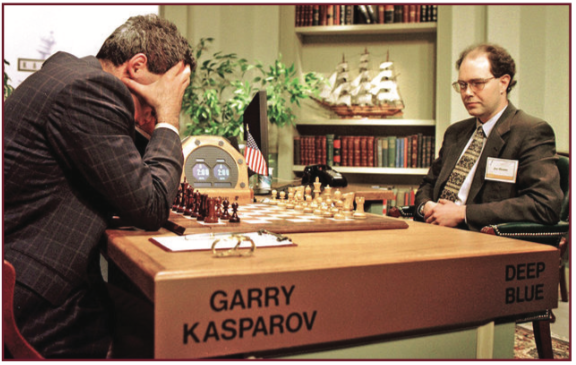
|
Managing Complexity with Creativity
Complex systems treated as if they were simple tend to generate problems. Our education system currently employs a reductionist method of learning. We must switch to evolutionary learning which can create the right interactions with a complex universe. Solutions to all our challenges are possible when the unutilized creative human potential that exists in abundance is developed and released. – Rodolfo Fiorini |
|||
Person-centered Evaluation
The challenge today is to create an evaluation system that will be able to identify competencies and skills. The main objective is to evaluate the integral formation of the student in his/her physical cognitive and socio-emotional aspects. The teacher should organize the contents, methodologies and forms of evaluation through technical and practical activities, oral and written tests, seminars, online projects and activities, problem solving and innovative learning projects. – Nilma Santos Fontaniven |
The Value of an Integral Teachers’ Training
We need a corresponding integration of disciplines and learning contexts. Teachers need to be properly equipped in order to help students develop resilience, acquire the capacity for teamwork and problem solving, learn new skills and think outside conceptual frameworks. Teacher training must reflect the growing complexity and multidimensionality of the teaching profession. National teacher training policies should encourage interdisciplinarity, interculturality, innovation and integral training for teachers. – Maria Helena Guimarães de Castro |
|||
Development of the ‘WHOLE’ Person |
||||
|
The institution has created a learning environment that focuses on development of the whole person. |
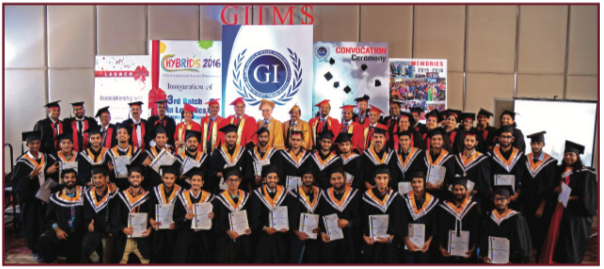 A change in pedagogy to an active, student-centered, contextual, interactive approach has generated dramatic results in a short time—absenteeism declined to near zero and new student enrollment rose 33% in a single semester. A change in pedagogy to an active, student-centered, contextual, interactive approach has generated dramatic results in a short time—absenteeism declined to near zero and new student enrollment rose 33% in a single semester.
Classroom learning has become enjoyable, as well as more effective. The interest and commitment of both young and older faculty members have soared. Janani Ramanathan |
|||
Towards an Ethical & Social Commitment to Educational Innovation
New social constructions of learning should be evolved, which guarantee the right to education for all. An ethical commitment to a new paradigm in education is the need of the hour. – José Francisco Pacheco |
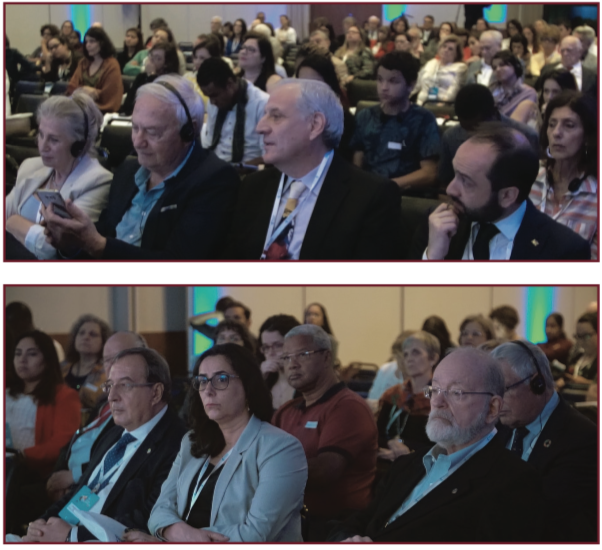 |
|||
Collaborative Education to Facilitate Innovation |
||||
|
All major challenges we face today can be eradicated when we no longer want to get ahead of the rest but work for the common good. Virtual Educa is an educational organization that provides a collaborative space for educators and administrators, with the aim of promoting improvement and innovation in education. |
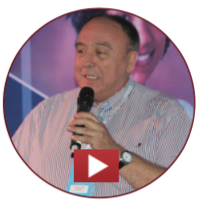 It operates through an alliance of international institutions, bringing together the public, business, academic and civil society sectors. It operates through an alliance of international institutions, bringing together the public, business, academic and civil society sectors.
It collaborates with international agencies like UN, World Bank, and various national governments in studying best practices, implementing educational innovation, using emerging technologies and addressing the needs of the 4th Industrial Revolution. – José Maria Antón |
|||
Education itself must Learn,
|
Education for Sustainable EntrepreneurshipThe education system should have sustainable entrepreneurship as one of its missions. We urgently need to prepare a cadre of entrepreneurs to lead their organizations toward a sustainable future. The most critical challenge is to utilize private sector resources and convert business as usual into a sustainable business. Change can be accomplished either by external forces of governmental regulations, market- based incentives or by internal forces of companies, bringing the necessary change from within themselves. – Zbigniew Bochniarz |
|||
Global Open Educational Resources
Educators, institutions, corporates and independent individuals are producing digital content for online learning adaptable to any theory of learning. These Open Educational Resources (OER) represent the new “bricks” with which learners can construct the “edifices” of their own individual knowledge-bases. Maintaining repositories of OER, expanding, updating and monitoring their quality are essential for our future. OER promises us a personalized, reliable, readily available information and training center of strategic importance to the productive sector. – Fredric M. Litto |
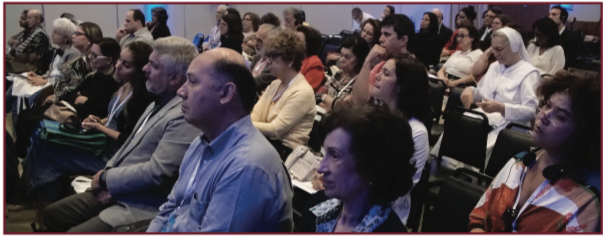
Metacognitive Model of Education
– Ronaldo Mota |
|||
The Use of Arts in Legal Education |
||||
Re-educating the way we think and act
The type and quality of our thinking shapes our perceptions and responses to the world and the consequences of our actions. Multidisciplinary and multi-cultural scientific research is urgently needed regarding the conscious and subconscious modes of thinking and the ways we can shift from one to the other. Becoming more conscious of ourselves and our thinking processes can convert confusion into understanding, conflict into peace and harmony at the level of the individual and the society. – Liora Weinbach |
Educating for Agility
Agility is one of the most needed universal skills and competences for individuals, teams and organizations. Its strongest value is universalism and the ability to understand and act in any discipline of science, area of practice and environment. It is based on a new inclusive culture of collaboration and requires freedom for creativity in developing solutions, support and stability in implementation. – Grażyna Leśniak-Łebkowska |
|||
Transforming Education in Ukraine
|
||||
Interdisciplinarity for Effective Learning |
||||
Unleashing Global Human Potential
|
||||
Diversity Management in Higher Education Institutions
Higher Education Awareness for Diversity (HEAD) Wheel is a managerial instrument for diversity management. It is a visual organizer that defines appropriate Diversity Management actions. It allows the mapping of measures implemented in the institution. Persons studying and working at an institution of higher learning draw on a variety of backgrounds that flow into one another. This frame does not deplete personality as a black box in the center but rather seeks to integrate it as acognitive dimension encompassing different learning strategies, problem-solving approaches and prediction and perception models. A paradigm shift from a deficit approach to a more resource-based approach that considers the diversity of students and staff as an asset will make an institution more inclusive and sustainable. HEAD Wheel is used by the University of Applied Sciences Upper Austria to facilitate an integrated, inclusive, person-centered learning environment. – Martina Gaisch |
||||
Requirements a University must meet: UNIFRANZ
– Rita Veronica A. Agreda de Pazos |
Culture of Collaborative Learning
Teachers can easily implement interdisciplinary strategies as they co-teach with specialised subject teachers. As teachers develop the culture of learning by working together, students reap the positive benefits of collaboration rather than competition. – Vani Senthil |
|||
   WAAS is collaborating with the Institute of Electrical and Electronics Engineers (IEEE), the world’s largest technical professional organization, to conduct a conference exploring the technological and social implications of emerging developments in cognitive computing and informatics at Politecnico di Milano University, Milano Italy. WAAS is collaborating with the Institute of Electrical and Electronics Engineers (IEEE), the world’s largest technical professional organization, to conduct a conference exploring the technological and social implications of emerging developments in cognitive computing and informatics at Politecnico di Milano University, Milano Italy.
WAAS is responsible for the track COGNITION-SOCIETY-WELLBEING (CSW), which will examine the Economic, Social, Political, Educational, Cultural, Psychological and Philosophical implications of rapid advances in cognitive computing, artificial intelligence and machine learning from the transdisciplinary perspective of Art & Science. IEEE is responsible for the CYBER-PHYSICAL-TECHNICAL (CPT) track covering technical papers on cognitive informatics, cognitive computing, computational intelligence and brain informatics. This conference provides an opportunity for WAAS to focus on issues regarding the social consequences and policy implications of science and technology, a paramount concern to the Academy’s founders. The ever accelerating pace of technological development in fields related to cognition and artificial intelligence have momentous implications for the future of global society and human wellbeing. It raises fundamental transdisciplinary questions about the relationship between human beings and the technologies they develop, the process and direction of social evolution, and the social responsibilities of science. The quest to discover the right relation between humanity the creator and the technologies it develops is one of the greatest challenges of the 21st century. Clashing visions of the future project images of unparalleled technological marvels beset by unanticipated and uncontrollable consequences for democracy, social stability, employment, human identity, culture, ecological security and human wellbeing. The Cognition, Society and Wellbeing track will run in parallel to the technical track with common plenary sessions. It will explore opportunities and challenges posed by rapid advances in cognitive science to assess alternative pathways to develop its potentials for promoting human well-being, while mitigating unanticipated threats to human security. Speakers are invited to explore topics such as the similarities and differences between human and machine consciousness and learning, the impact of AI on employment and human security, emerging forms of global social organization, the nature of creativity and wisdom, the integration of objective and subjective dimensions of knowledge, the need for radical changes in education, and other issues. See the full list of topics on the back of this announcement. Main Themes include Thinking, Creativity, Mind & Brain, Education, Symbiotic Art & Science, Technological and Social EvolutionThe deadline for submission of full papers to selection committee: March 31, 2019 For more information, please click here or contact cognition@worldacademy.org. |
||||

November 2019 – Belgrade, Serbia |
||||
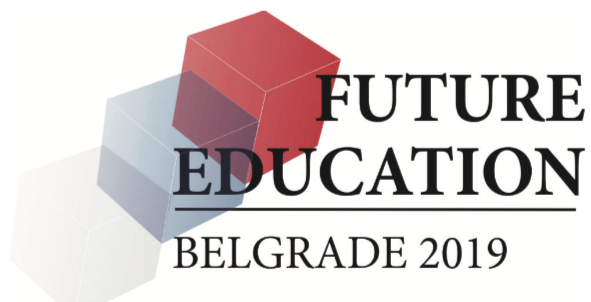
THE CHALLENGEWe live in an amazingly interconnected world full of new normalities which bring a profound level of complexity and uncertainty into all aspect of our lives. It is increasingly difficult to understand relations between cause and effect when causes are so complex and interrelated. The global character of information, economy, governance and ecology presents tremendous challenges to modern education. Education has had a profound impact on society in each new period of its development. Today, the volume of information generated in recent years is greater in volume than all the knowledge accumulated since the dawn of civilization. This information is available online and accessible to all, even by mobile phone. At the same time, the increasing speed of technological breakthroughs, particularly the disruptive innovations of Industrial Revolution 4.0, are widening the gap between education and employment. Formulation of a new paradigm in education is urgently needed to address these challenges, capitalize on the emerging potentials, and transform possible threats into opportunities. The World Academy of Art & Science (WAAS) and the World University Consortium (WUC) are working in partnership with universities and other organizations around the world with this objective. PROPOSED SOLUTIONSEducation is the key driver for social progress. The educational system today too closely resembles the model introduced at the University of Bologna at the end of XI century, centuries before the invention of the print press when all knowledge was in the possession of a very small number of scholars with limited means to share and disseminate it, mentorship could only be done through oral lectures, books were hand-written and so rare that they were kept chained to library shelves. |
Radical changes are needed to keep pace with the societal evolution. There are growing signs of a shift from subject-centered to student-centered education, from silo-based to interdisciplinary perspectives, from top down to peer-to-peer learning models, from imparting information to developing the whole person. Educators are coming to recognize the central importance of creative thinking skills—the capacity to think beyond the limits of the existing conceptual framework, to synthesize multiple perspectives and see the whole. We now know these processes can be learned.A new type of education—a new paradigm—is urgently needed to address the challenges and paradoxes of the coming age. Today’s youth need to acquire “evolutionary competence” based on knowledge and skills for jobs that do not even exist today. In order to become responsible citizens, they need also to acquire the values and awareness of the challenges confronting global society and every nation. FOCUS OF THE 4TH INTERNATIONAL CONFERENCE OF FUTURE EDUCATIONIn earlier education conferences at Berkeley in 2013, Rome in 2017 and Rio de Janeiro in 2018, WAAS and WUC have repeatedly posed a challenging question: How can we create an affordable, accessible, world- class system of education open to the growing millions of youth seeking it? Insightful thinkers from different fields have already recognized the need for a radical paradigm change in teaching and learning, in order to meet the new normalities confronting modern society. The challenge now is the convert our new understanding into effective strategies and practical methods. The 4th International Conference on Future Education is being organized in Belgrade, Serbia in November 2019 in order to accomplish this goal. The following are some areas the conference will explore:
|
|||
THE AGENDA
The Conference was organized into streams focusing on the following themes:
- Early Childhood Learning
- Person-Centered Learning
- Teacher Education
- Basic Education
- Higher and Technological Education
- Transdisciplinary Education
- Online and Hybrid Learning
- Education and Innovation
- Education and Employment
PROGRAM OF THE CONFERENCE
November 12, 2018
09: 00 – Accreditation and Registration
10: 00 – Opening Session
10: 40 – Keynote Conference: Education and the 4th Industrial Revolution
12:00 – Lunch
13:00-14:00 – Panel 01 – Critical issues for the future of education – The major challenges confronting education in a rapidly changing, interconnected and increasingly complex society that is emerging in the 21st century. Learning in the age of increasing advances in science and technology, online libraries, new information and communication technologies, person-centered education and innovations in early childhood education.
14:00-15:00 – Panel 02 – Education and Entrepreneurship (Entrepreneurship training, technological parks and incubators, innovative companies, intellectual property, articulation between universities and industry).
15:00-15:30 – Coffee break
15:30-18:00 – Presentation of Papers
November 13, 2018
08:30-09:30 – Panel 03 – Reconciling vision of the Future – This panel will seek to reconcile the views of business, society, government, students and universities in order to evolve a shared vision of the changes needed in the educational system and the critical issues that need to be explored.
09:30-09:50 – Coffee break
9:50-10:50 – Panel 04 – Evaluation as Support for Quality Improvement of Education (national evaluation programs and policies).
10:50- 13:00 – Presentation of Papers
13:00 – Lunch
14: 00-15:00 – Panel 05 – Teacher training programmes for Basic Education (the role of pedagogy courses, pedagogical residency, teachers undergoing training in mathematical and natural sciences, the role of culture in training programmes).
15:00-15:20 – Coffee Break
15:20-16:20 – Panel 06 – Contextual Interdisciplinary Education – The STEM Methodology in Higher Education (Science, Technology, Engineering and Mathematics, transdisciplinarity to lead to real-world problems).
16:20-18:00 – Presentation of Papers
November 14, 2018
08:30-09:30 – Conference-Higher Education, Science, Technology and Innovation as key development factors. Innovation, Creativity and Technology
09:30-10:30 – Panel 07 – Call for a New Paradigm in Education – This session will consider the need for a radical changes in educational accessibility, quality, content, relevance, pedagogy and deliver systems to meet the emerging needs of the 21st century. Higher Learning for Tomorrow: Challenges Ahead. (National exams, samples of selective processes in Latin America).
10:30-10:50 – Coffee break
10:50-13:00 – Presentationof Papers
13:00 – Lunch
14:00-15:00 – Panel 08 – Online & Hybrid Learning – Distance Learning Education and Social Inclusion in Latin America (Education aimed at solving social issues) . “MOOCs”, National Programs, Open Universities in Latin America, New Educational Platforms. Technology integrates itself more and more into every aspect of education, and the internet opens up new learning models. This session looks at ways to harness emerging technologies to enhance the reach, quality, affordability and effectiveness of education.
15:00-16:00 – Panel 09 – Education for Full Employment – Some jobs will disappear in the near future. All others will transform radically and many new jobs will be created. Half of all jobs that exist today will disappear by the time children who are now enrolled in primary school graduate. (The organization of curricular structures for training for full employment, short courses, the Bologna process and its feasibility in Latin America).
16:00-16:20 – Coffee Break
16:20-18:00 – Presentation of Papers
18:00 – Closing Session and Final Report
THIRD INTERNATIONAL CONFERENCE ON FUTURE EDUCATION
“LATIN AMERICAN PERSPECTIVES”
Effective Learning in an Age of Increasing Speed, Complexity and Uncertainty
November 12-14, 2018 – Rio de Janeiro – Brazil
Abstracts
- Building Capacities for Sustainable Entrepreneurship: Theoretical and Practical Aspects by Zbigniew Bochniarz
- Implementing Concepts of Learning Community and Person-centered Education: Some Practical Remarks by Zbigniew Bochniarz
- Making education better responding to the changing labour market by Joanna Bochniarz, Zbigniew Bochniarz
- Education Competence for the Anthropocene Era by Rodolfo A. Fiorini
- Higher Education Institutions in the middle of economic, social and political pressures by Martina Gaisch
- Teaching of Law and Cyberlaw: Pedagogical Possibilities from the Universe of “The Watcher of Tomorrow: Ghost in the Shell” by Heron José De Santana Gordilho, Saulo José Casali Bahia, Fernando De Azevedo Alves Brito
- What Counts is Not Always Counted. Education in the Post Industrial Era by Yehuda Kahane
- Using the Voice as Means of Monitoring the Level of Human Discourse by Ernesto Korenman, Yehuda Kahane
- Agile teams education to meet new challenges by Grażyna Leśniak-Łebkowska
- The Future of Education is Bilingual by Aitza Haddad Nunez
- Education for a Future with Uncertain Employment by Neantro Saavedra-Rivano
- Space and Voice – Preconditions for Education and Innovation by Ullica Segerstrale
- Switch My Mind – SMM by Liora Weinbach, Yehuda Kahane, Ernesto Korenman, Unitalk Ltd
Papers
- Education Competence for the Anthropocene Era by Rodolfo A. Fiorini
- Education for Full Employment by Marcel H. Van de Voorde
Presentations
- Teaching of Law and Cyberlaw: Pedagogical Possibilities from the Universe of “The Watcher of Tomorrow: Ghost in the Shell” by Saulo José Casali Bahia, Heron José De Santana Gordilho, Fernando De Azevedo Alves Brito
- Future of Work and Education for the Digital Age by Jorge Guillermo Barbosa Garzon, et al
- Building Capacities for Sustainable Entrepreneurship: Theoretical and Practical Aspects by Zbigniew Bochniarz
- Implementing Concepts of Learning Community and Person-centered Education: Some Practical Remarks by Zbigniew Bochniarz
- Making education better responding to the changing labor market by Joanna Bochniarz, Zbigniew Bochniarz
- What is Transdisciplinary Education? by Rodolfo A. Fiorini
- Education for Full Employment by Rodolfo A. Fiorini
- Evaluation as support for quality improvement in education by Nilma Santos Fontanive
- Higher Education Institutions in the Middle of Economic, Social and Political Pressures by Martina Gaisch
- New Paradigm in Education by Garry Jacobs
- Education in the Post Industrial Era by Yehuda Kahane
- Agile teams education to meet new challenges by Grażyna Leśniak-Łebkowska
- A New Model for Self-Instruction in Continuing Education: The Referatory of Global Open Educational Resources by Fredric M. Litto
- Vision of the Future by Ronaldo Mota
- Education for a Future with Uncertain Employment by Neantro Saavedra-Rivano
- Education for Full Employment by Marcel H.Van de Voorde
- Humane Discourse as a foundation to Future Education and Sustainability. From Unconscious to Conscious Speech and Uni-Talk by Liora Weinbach
- The need for person-centered education to develop resilient and sustainable ways of knowing, doing and being by Alberto Zucconi

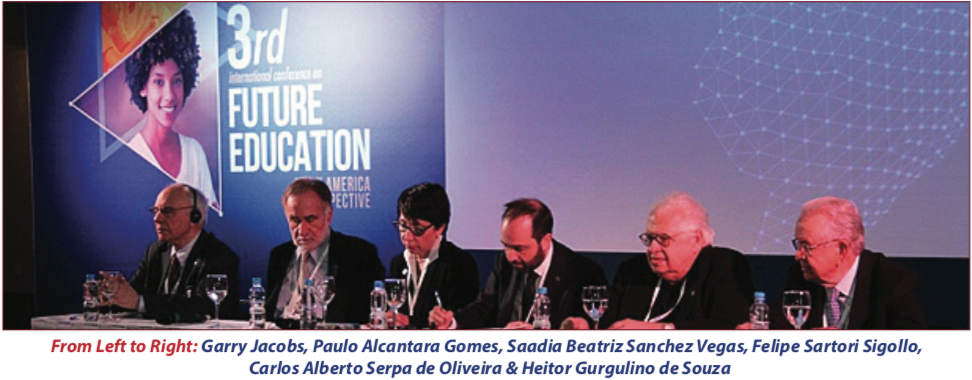
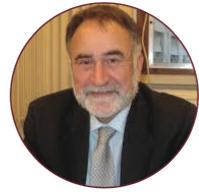
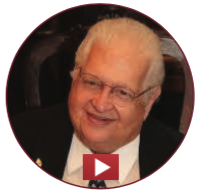
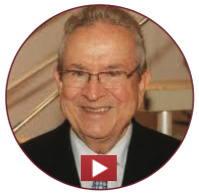
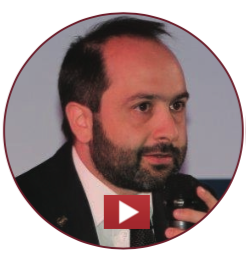
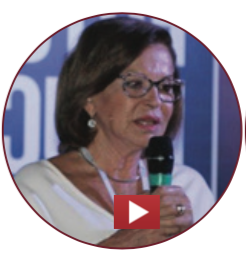
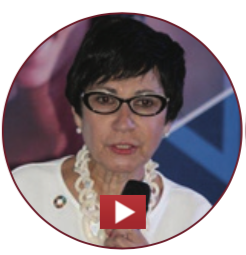
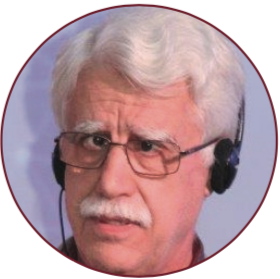
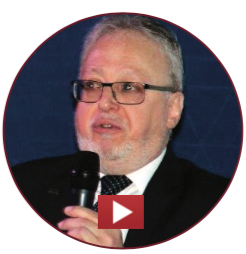
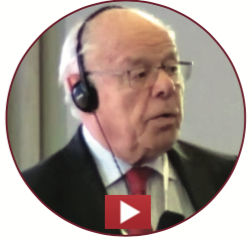
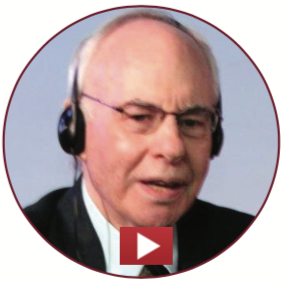
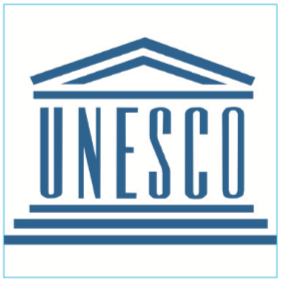
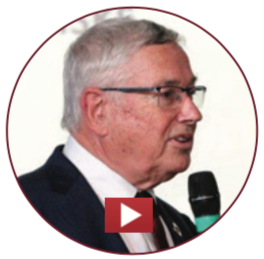
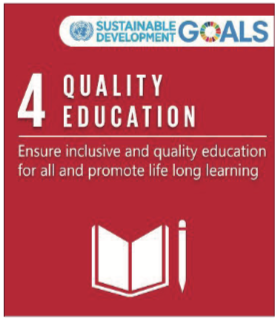
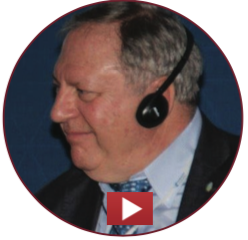
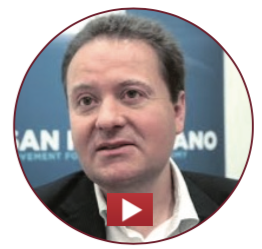

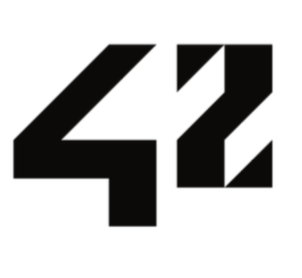
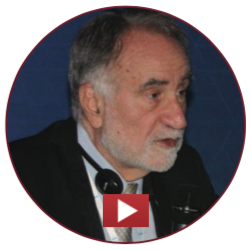
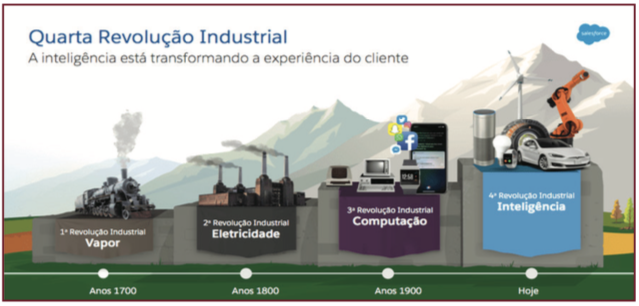
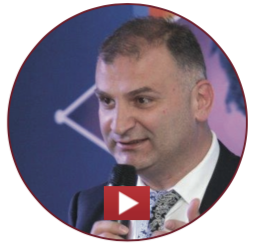
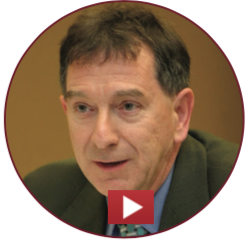

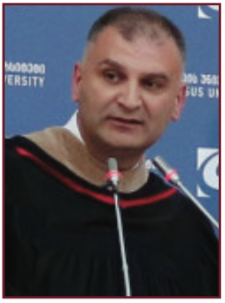
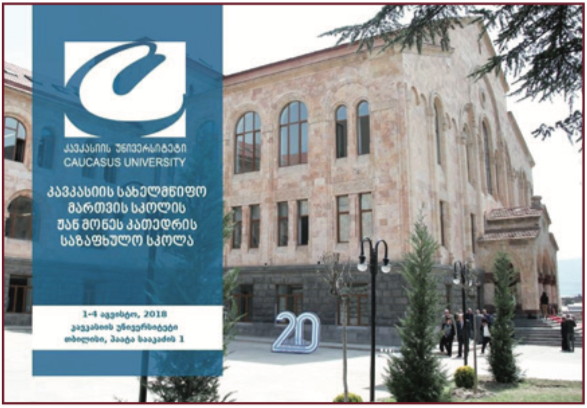
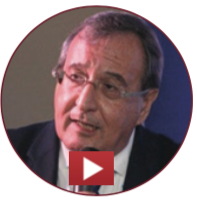
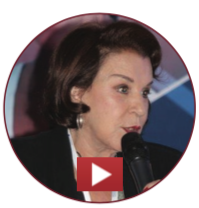

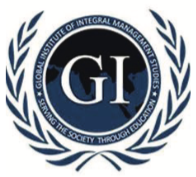 When learning is contextual and derived from the real life experience of oneself and others, education becomes a live, dynamic, exciting and natural experience. Such a change has been brought about at the Global Institute of Integral Management Studies (GIIMS), India.
When learning is contextual and derived from the real life experience of oneself and others, education becomes a live, dynamic, exciting and natural experience. Such a change has been brought about at the Global Institute of Integral Management Studies (GIIMS), India.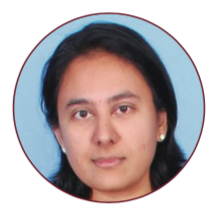 The transformation applied the WUC model for new paradigm education guided by two WUC charter members —the Person-Centered Approach Institute (IACP), Italy and The Mother’s Service Society (MSS), India.
The transformation applied the WUC model for new paradigm education guided by two WUC charter members —the Person-Centered Approach Institute (IACP), Italy and The Mother’s Service Society (MSS), India.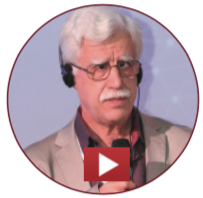
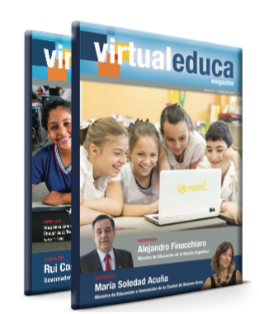
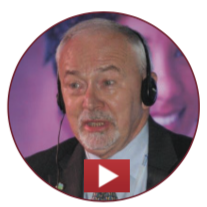
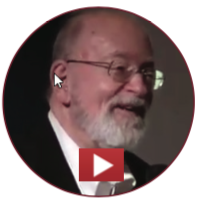
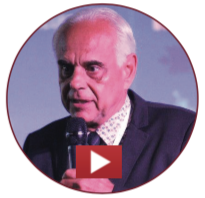
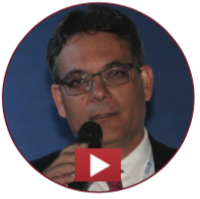
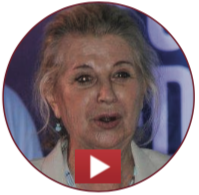
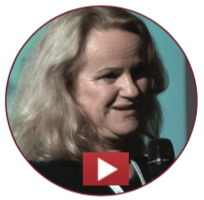
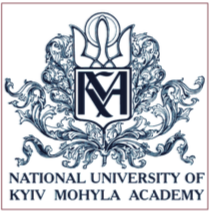
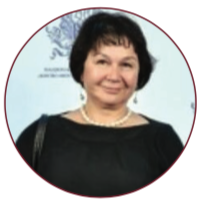 importance of a new paradigm in education. This was followed by a number of meetings with Ukrainian youth. A roundtable “New education for the New Economy” was also organized in the Parliament of Ukraine, under the umbrella of WAAS and Club of Rome, with Garry Jacobs and
importance of a new paradigm in education. This was followed by a number of meetings with Ukrainian youth. A roundtable “New education for the New Economy” was also organized in the Parliament of Ukraine, under the umbrella of WAAS and Club of Rome, with Garry Jacobs and 
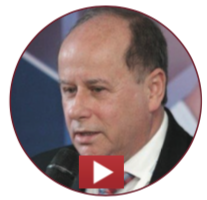
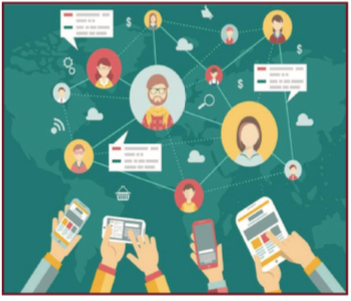 Mackenzie University of Brazil employs various pedagogical innovations in order to create knowledgeable, discerning and responsible citizenry in the country.
Mackenzie University of Brazil employs various pedagogical innovations in order to create knowledgeable, discerning and responsible citizenry in the country.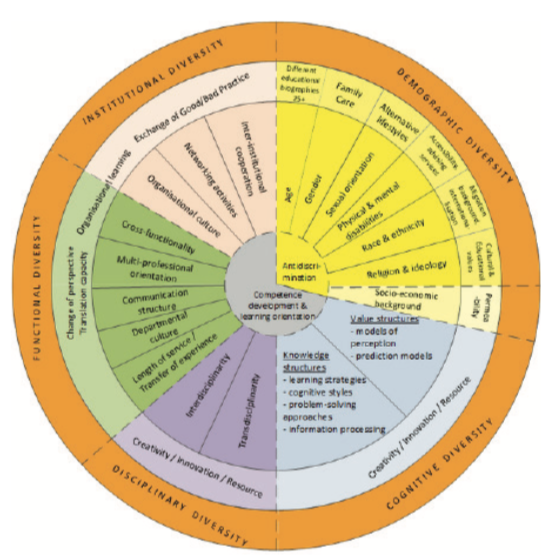
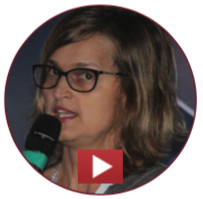

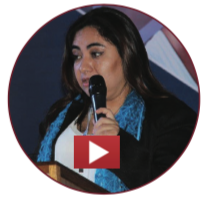
 The series of WAAS-WUC conferences have identified new models, methods, approaches, attitudes and values that will shape education into an effective driving force for social evolution in the 21
The series of WAAS-WUC conferences have identified new models, methods, approaches, attitudes and values that will shape education into an effective driving force for social evolution in the 21